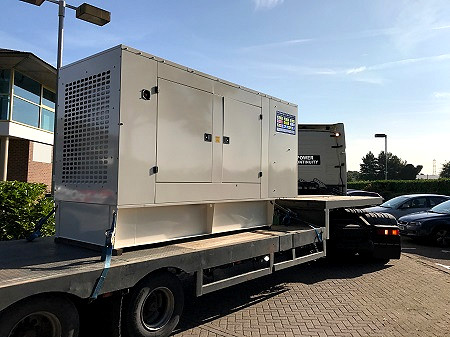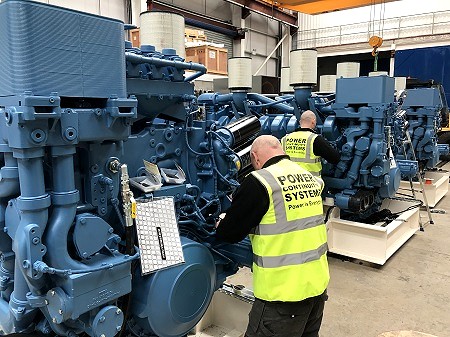The Comprehensive Guide to Diesel Generator Installation: Ensuring Reliable Power Supply
Introduction
In an era where uninterrupted power supply is crucial for businesses and homes alike, diesel generators stand out as reliable sources of backup power. Diesel generator installation plays a pivotal role in ensuring a seamless transition during power outages. In this comprehensive guide, we will delve into the key aspects of generator installation, highlighting the importance of proper setup and maintenance.
Understanding the Basics
Before delving into the installation process, it’s essential to have a clear understanding of diesel generators. Unlike their gasoline counterparts, diesel generators utilize compression ignition to generate power, making them more fuel-efficient and durable. These generators are commonly employed in various settings, including industrial facilities, commercial establishments, and residential properties.

Importance of Generator Installation
The installation of a diesel generator is a critical step in establishing a reliable backup power system. Whether you are safeguarding your business operations or ensuring your household remains powered during an outage, a well-installed generator can make a significant difference. Here are key reasons why generator installation is crucial:
- Reliability: Proper installation ensures the reliability of the diesel generator, minimizing the risk of malfunctions during operation. A well-installed generator is more likely to start promptly and provide consistent power when needed.
- Safety: Safety is paramount when dealing with electrical systems. Professional installation reduces the risk of electrical faults, ensuring that the generator operates safely. This is particularly important to prevent accidents and damage to connected equipment.
- Optimal Performance: Diesel generators are designed to deliver optimal performance when installed correctly. Proper placement, wiring, and ventilation are essential factors that contribute to the generator’s efficiency and longevity.
Diesel Generator Installation Process
Now, let’s break down the diesel generator installation process into key steps:
- Site Assessment: Before installation, a thorough site assessment is crucial. Consider factors such as available space, ventilation, and proximity to fuel sources. Adequate space is essential for proper airflow and maintenance access.
- Foundation Preparation: A stable foundation is necessary to support the weight of the generator and minimize vibrations during operation. Depending on the generator’s size, a concrete pad or other suitable foundation may be required.
- Ventilation Requirements: Diesel generators produce heat during operation, necessitating proper ventilation. Adequate airflow prevents overheating and ensures the generator operates at optimal temperatures. Install exhaust systems and cooling mechanisms as needed.
- Electrical Wiring: Proper electrical wiring is critical for the safe and efficient operation of the generator. This includes connections to the main electrical panel, transfer switch, and other relevant components. It’s advisable to hire a licensed electrician for this task.
- Fuel System Installation: Diesel generators require a reliable fuel supply. Install fuel tanks, piping, and ensure proper fuel filtration to prevent contamination. Regular maintenance of the fuel system is essential to guarantee a continuous power supply.
- Startup and Testing: Once the physical installation is complete, the generator should undergo a thorough startup and testing phase. This includes checking electrical connections, conducting load tests, and ensuring all safety features are functional.

Maintenance and Best Practices
Diesel generator installation is not a one-time task; regular maintenance is crucial to keep the system in optimal condition. Here are some best practices for maintaining a diesel generator:
- Regular Inspections: Schedule routine inspections to check for leaks, worn-out components, and any signs of damage.
- Oil and Filter Changes: Follow the manufacturer’s guidelines for oil and filter changes. Clean oil ensures the engine operates smoothly and extends the generator’s lifespan.
- Battery Maintenance: Diesel generators rely on batteries for starting. Keep the batteries charged and replace them as needed to avoid unexpected failures.
- Load Testing: Periodically conduct load tests to ensure the generator can handle the required electrical load. This helps identify any potential issues before they become critical.
Conclusion
In conclusion, diesel generator installation is a multifaceted process that requires careful consideration of various factors. From site assessment to regular maintenance, each step plays a crucial role in ensuring a reliable backup power supply. By investing time and resources in a well-planned installation, businesses and homeowners can enjoy the peace of mind that comes with knowing they are prepared for unexpected power outages.

Recent Post
What is The Meaning of a Medusa Tattoo?
January 9, 2025
The Meaning of Encanto in Spanish and Origin
January 4, 2025
Equivalent Phrases For “Including But Not Limited To”
December 30, 2024
How To Make Weekend Greetings More Fun?
December 30, 2024
10 Modern Sayings Similar To “Be There Or Be Square”
December 30, 2024








